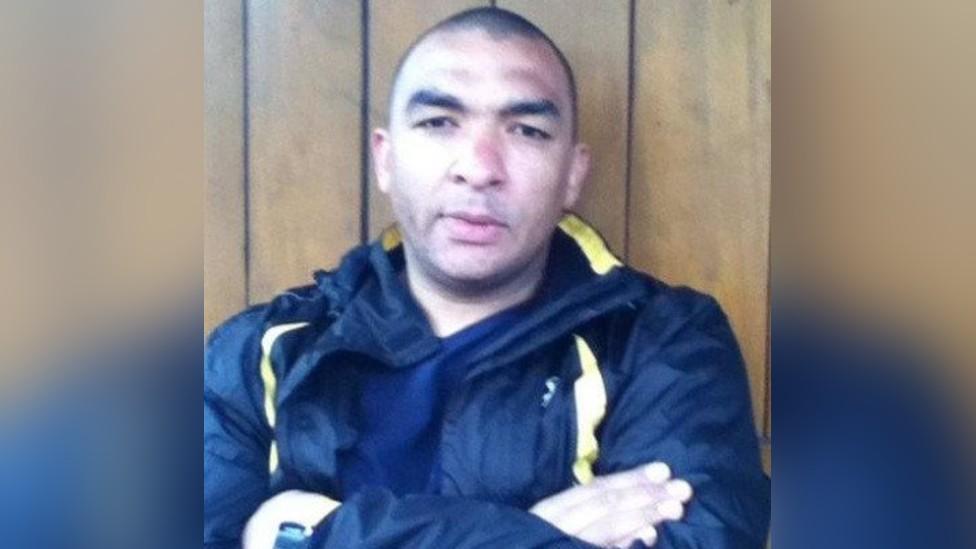Leon Briggs: Police carried man who died in 'potentially dangerous' way
- Published
Leon Briggs: CCTV shows man unresponsive in cell before death
The way police officers moved a restrained man who later died was "potentially dangerous" and against "strict guidance", an inquest heard.
Leon Briggs, 39, was restrained under the Mental Health Act on a street in Luton, handcuffed and placed in leg restraints on 4 November 2013.
He was lifted face-down to a van and taken to Luton police station. He later became unconscious and died.
An officer told the inquest carrying Mr Briggs face-down was "not ideal".
PC Peter Baron assisted two Bedfordshire Police officers during the restraint on Marsh Road. Police had been called following due to concerns about Mr Briggs's behaviour.
He told the inquest into Mr Briggs's death that the way officers moved him from the ground to a police van went against the "approved technique".
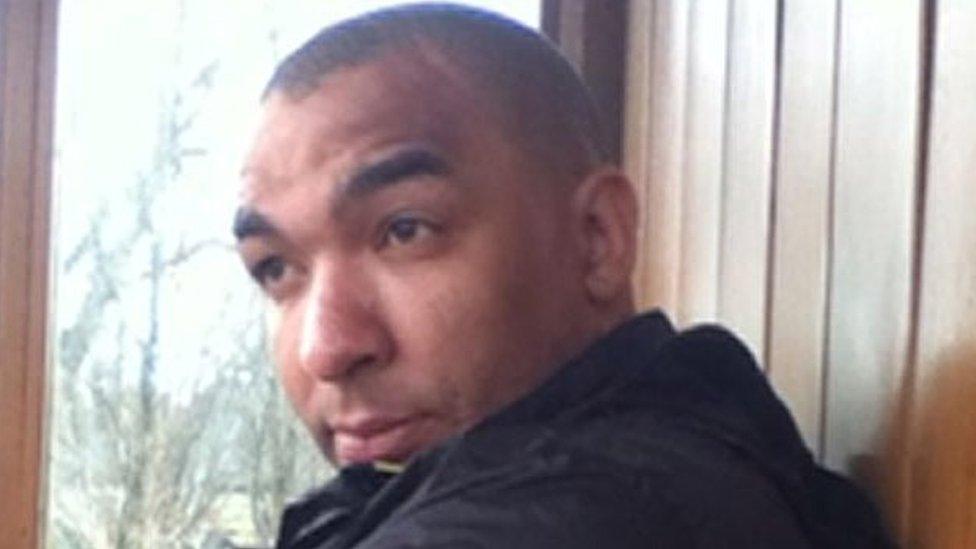
The jury was told that Mr Briggs was having "an acute mental health crisis" during the incident
The father-of-two was detained in a cell at about 14:25 GMT under the Mental Health Act. He became unconscious and was pronounced dead in hospital at about 16:15.
The inquest heard his primary cause of death was "amphetamine intoxication with prone restraint and prolonged struggling".
A secondary cause of death was given as coronary heart disease.
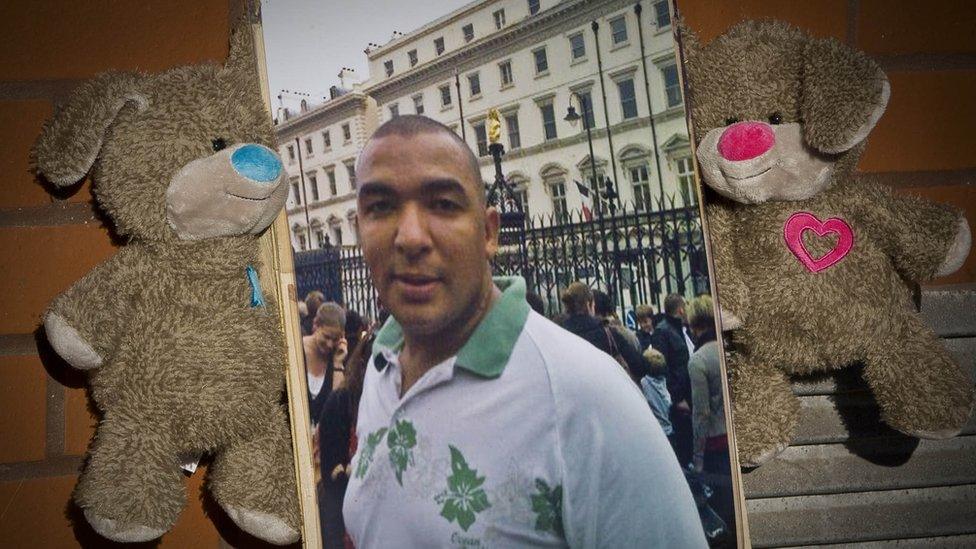
Mr Briggs was described as "a really good dad" who loved spending time with his children
PC Baron told the jury Mr Briggs was "making a lot of noise" when he arrived at the scene and "appeared to be talking to someone who wasn't present".
He described the officers as being "very calm and controlled" while Mr Briggs was "actively thrashing around" and said he was not pinned or held down.
"The whole circumstance felt like it was under control, not out of control, and their behaviour was appropriate to the circumstance in which I saw," he said.
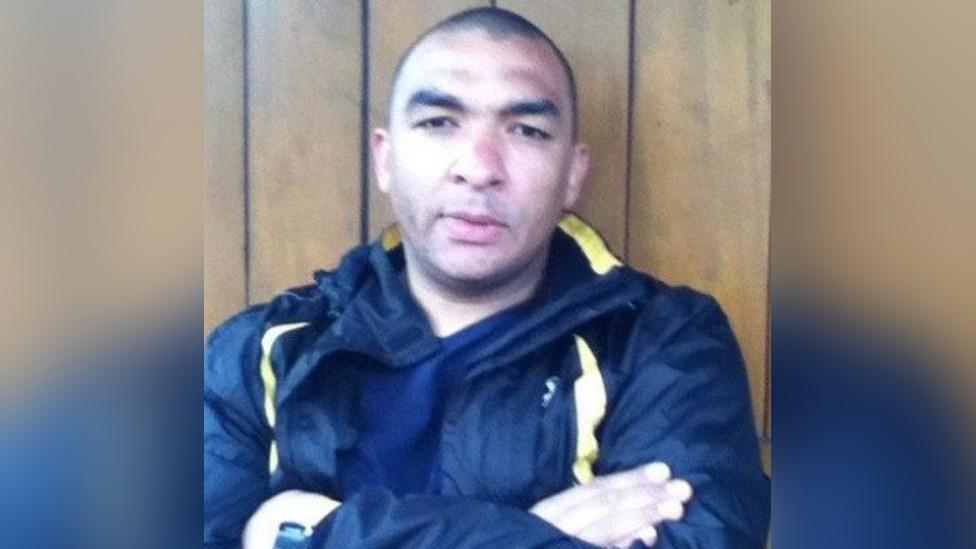
Mr Briggs was "deeply disturbed" while at Luton police station, the inquest heard previously
PC Baron told the inquest the way in which the lorry driver was held was "not ideal" as he was in a prone position.
"Because Mr Briggs was acting in a manner where he wasn't in control of himself we needed to take into account not only his safely but our safety as we carry him to the van," he said.
PC Baron said he and his colleagues decided to carry Mr Briggs to the police van face-down as it was the "fastest way" and they wanted to move him quickly to "eliminate the threat of positional asphyxia and get him off the floor".
"Had there been more of us available to carry Mr Briggs in the approved technique we would have done that," he said.
"Yes, the way we carried him was not in line with the strict guidance or training, but we knew it would have been swift."
The inquest continues.

Find BBC News: East of England on Facebook, external, Instagram, external and Twitter, external. If you have a story suggestion email eastofenglandnews@bbc.co.uk, external
Related topics
- Published4 February 2021

- Published2 February 2021
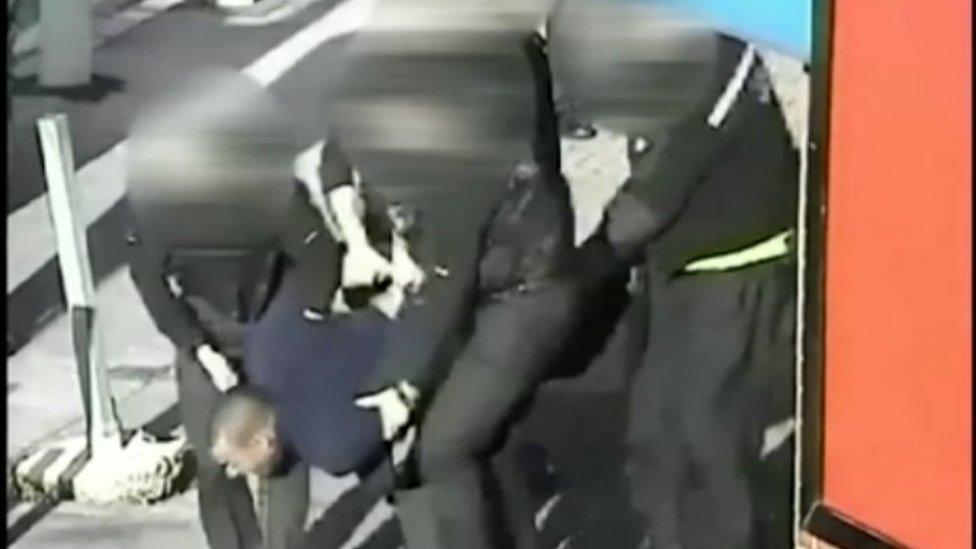
- Published1 February 2021

- Published28 January 2021

- Published27 January 2021

- Published26 January 2021
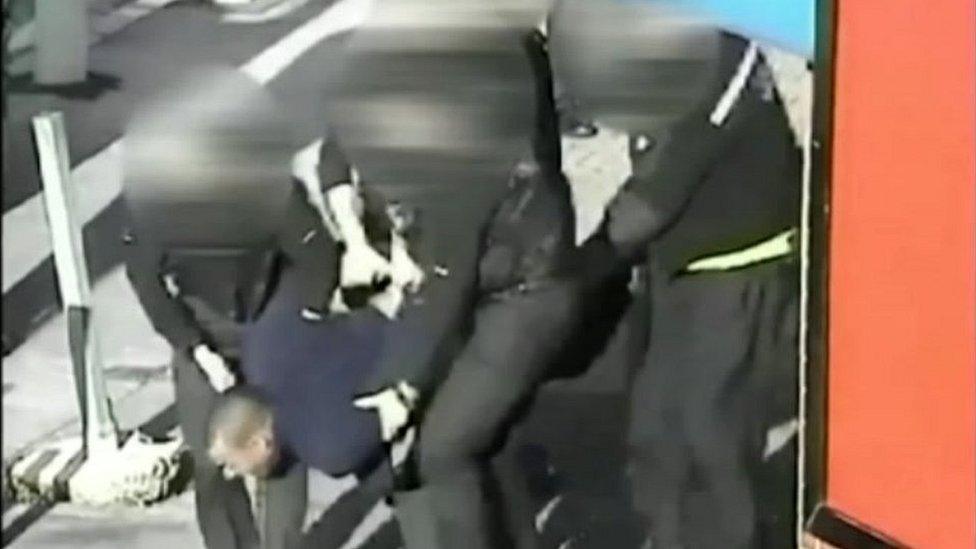
- Published25 January 2021

- Published21 January 2021

- Published19 January 2021

- Published18 January 2021

- Published14 January 2021

- Published13 January 2021
